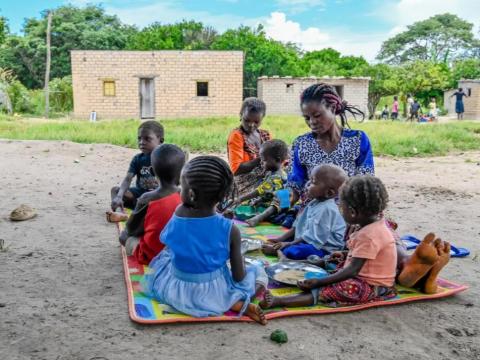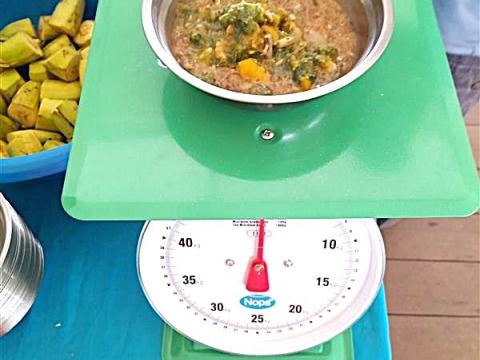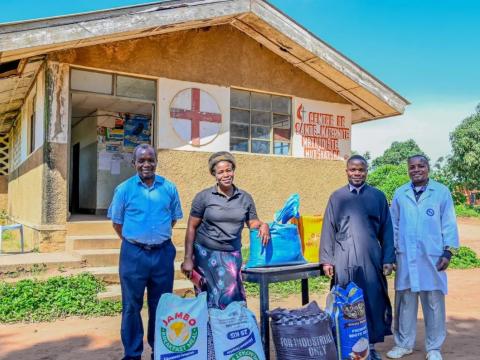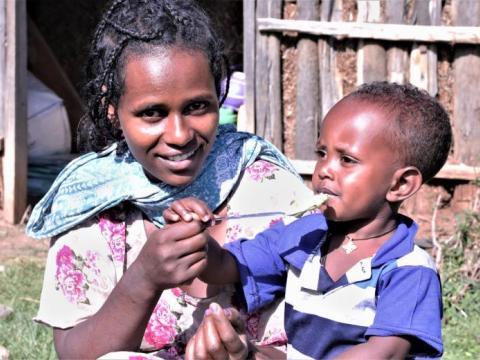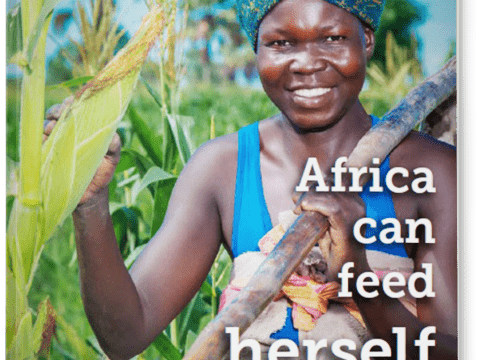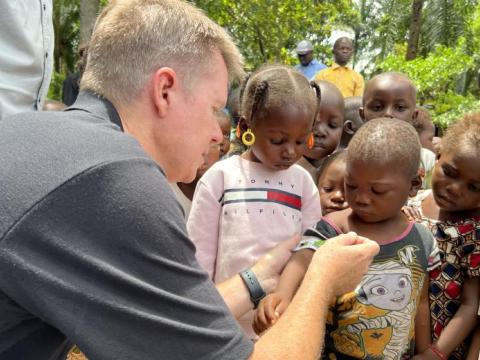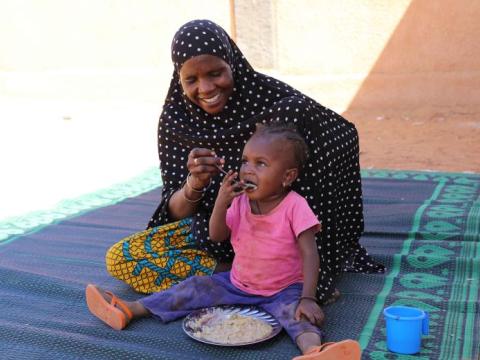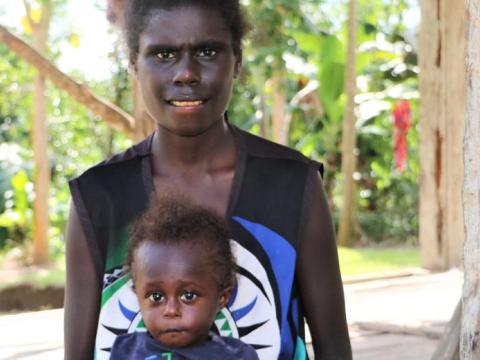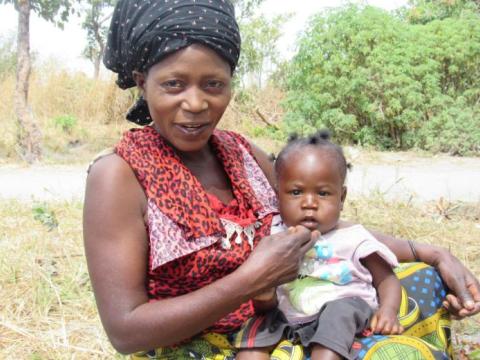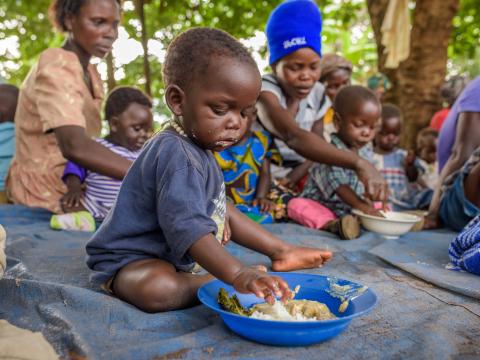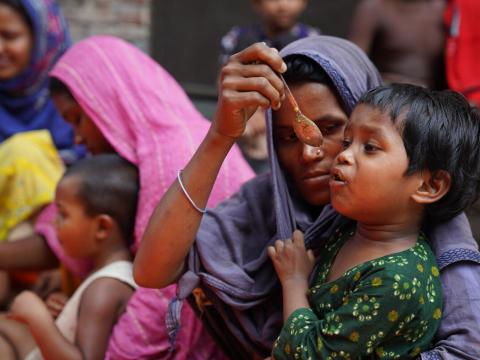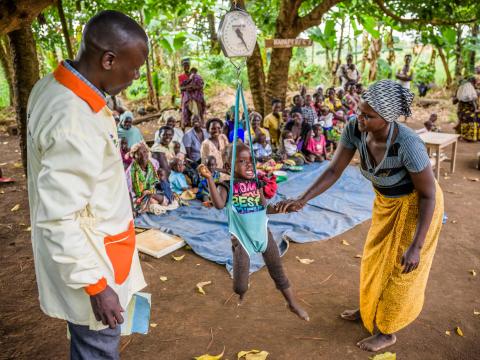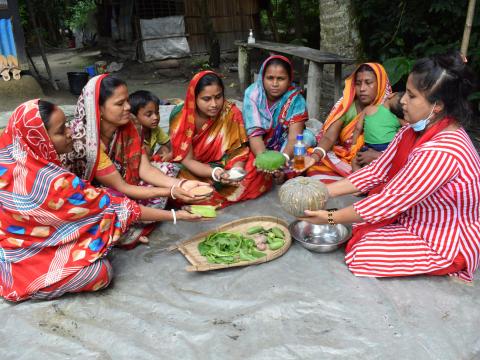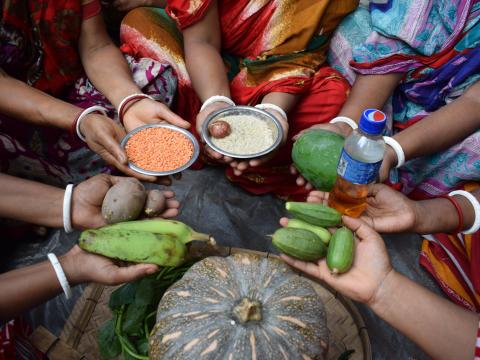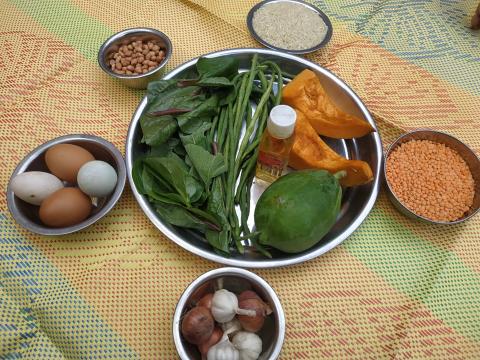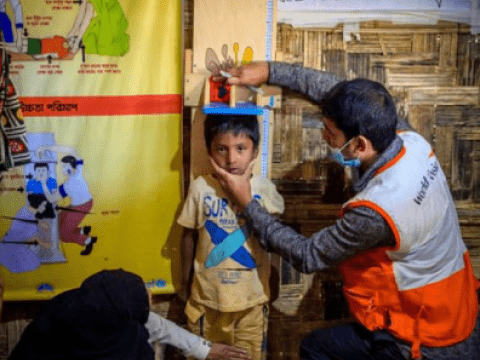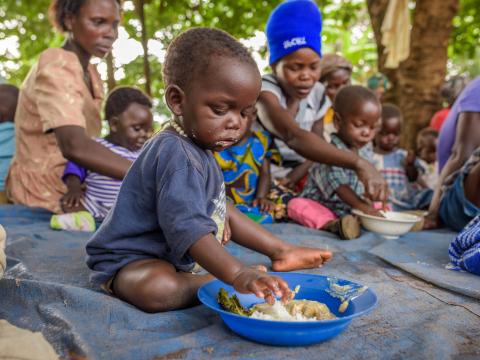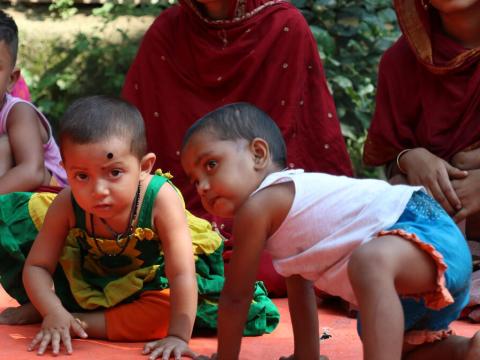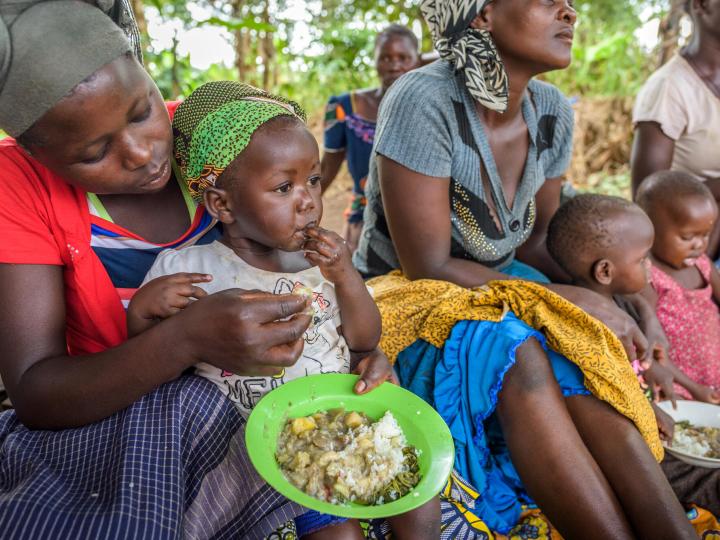
Positive Deviance/Hearth
Positive Deviance/Hearth
Positive Deviance/Hearth (PDH) is a community-based, food-based approach designed to tackle child malnutrition through local solutions and sustainable behaviour change. It has three interrelated goals:
- To reduce the prevalence of malnutrition among children under five.
- To build local capacity to treat malnourished children and sustain their rehabilitation.
- To prevent future malnutrition among all children in the community.
In 2024, more than 49,100 at risk and underweight children under five years were enrolled in PDH programmes across 21 countries, with 54% fully rehabilitated within three months.

Over the last 10 years, World Vision treated more than 372,000 undernourished children under 5 across 44 countries, using only locally-available, nutritious foods.
Understanding Positive Deviance
‘Positive deviance’ refers to behaviours or practices that deviate from the norm in a beneficial way. Despite poverty and limited food resources, some caregivers raise well-nourished children. By identifying and understanding what these “positive deviant” families do differently, communities can uncover unique, culturally relevant nutrition solutions. Examples of positive deviant practices include Vietnamese mothers collecting shrimp for their children while working in rice paddies, Ecuadorian women pre-masticating meat before feeding it to their young children, and mothers in Democratic Republic of the Congo adding dried, powdered caterpillars to their children's porridge.
What is Hearth?
Hearth refers to the 10- to 12-day nutrition rehabilitation and education session for underweight and moderately wasted children and their primary caregivers. In many communities, grandmothers and fathers also participate.
Key features of Hearth:
- Children receive an additional daily meal, prepared with locally available, low-cost nutritious ingredients, including positive deviant foods.
- Caregivers prepare meals together, contributing ingredients and learning through hands-on experience.
- One Hearth message is shared daily, based on six locally identified practices that address key causes of malnutrition in the community.
- Behaviour change through practice is at the core – families witness children regaining appetite, energy, and weight.
- After Hearth, community volunteers continue to monitor growth and provide ongoing support to help families maintain the new behaviours and overcome challenges.
Implementation and scale
Since 1999, World Vision has implemented the Positive Deviance/Hearth (PDH) approach in 40 countries. It is one of World Vision's core project models for nutrition, and is currently being implemented in 21 countries.
World Vision has implemented Positive Deviance Hearth in 40 countries since 1999. This approach is one of World Vision’s core project models in nutrition, and is currently being used in 20 countries. WV began implementing PDH+ in 2021; the ‘plus’ component includes additional prevention interventions integrated with PDH. These interventions can include regular or decentralised growth monitoring and promotion, infant and young child feeding counselling, mother support groups, nurturing care groups, biofortification, kitchen gardens, micronutrient powders, animal revolving funds, and savings groups.
Expanding Impact through PDH+
In 2021, World Vision introduced PDH+, an enhanced version of the model that integrates additional preventive nutrition interventions alongside traditional PDH activities. These may include regular or decentralised growth monitoring and promotion, infant and young child feeding (IYCF) counselling, mother support groups and nurturing care groups, biofortification and kitchen gardens, micronutrient powders (MNPs), animal revolving funds, and savings groups to support household resilience.
PDH+ strengthens the link between rehabilitation and prevention, creating a more comprehensive and sustainable community-based nutrition programme.
Cost of Programming
Implementing PDH, particularly when integrated with food security and livelihoods interventions, requires substantial initial investment in training and start-up. Costs typically remain high as activities scale in each fiscal year.
A cost analysis from World Vision’s area programmes in Bangladesh, Honduras, India, and Mali showed a per capita cost ranging from $0.73 in Mali to $4.86 in India and $9.00 in Bangladesh. In India, up to 80% of the total programme cost was attributed to food production activities, including provision of garden inputs and livestock through animal revolving funds.
